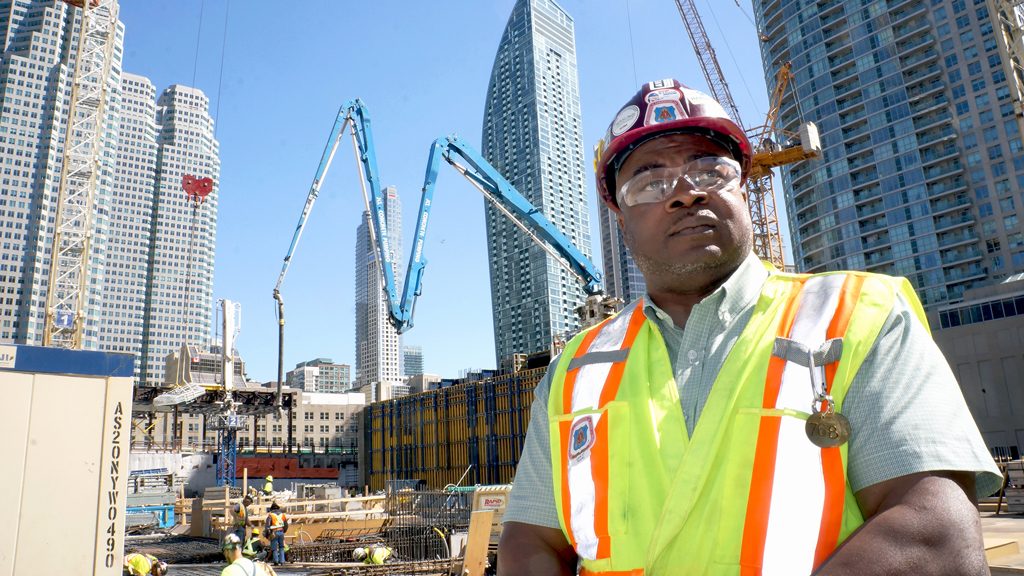The 47th International Convention of the Coalition of Black Trade Unionists (CBTU) held in Orlando, Fla. recently saw the largest turnout ever of delegates from Ontario.
Among the Canucks, five were from Carpenters’ Local 27 in Toronto, including business representative Chris Campbell. It was his first time at the event but it probably won’t be his last.
Understanding and fighting right-wing populism was among the themes at the conference which drew 850 delegates.
A seminar where black workers spoke about their experiences of racism on the job hit home for Jamaican-born Chris Campbell who has his own stories to tell after 30 years in construction in Toronto.
A business representative for Local 27 for 15 years, Campbell left Jamaica in the late 1980s to create a new home in Toronto.
While racism was not as overt in Canada as the U.S., he says for blacks or people of colour, landing good jobs in construction or getting into the Carpenters’ Union in Toronto could be difficult in the 1980s — moreso even a decade or two earlier.
Things are different today, at least at the union, he says.
Merit, a worker’s experience, is the key, not the colour of your skin.
“If they can prove to me that they have Canadian experience then I explain that to (Local 27 president) Mike Yorke and he will say, ‘Go right ahead, Chris, bring them in the union,’ ” Campbell describes.
CBTU president Terry Melvin says the construction industry has seen black worker representation rise markedly in the past five to 10 years. He attributes the increase largely to initiatives such as pre-apprenticeship, community benefit programs and others that have provided “tangible access” or integration of black workers into the building trades.
“It’s not perfect but we’re making small steps to improve things,” adds Campbell.
Melvin says the record turnout of Canadian delegates at the conference is a positive sign.
“With the struggles going on in the movement, it really shows the commitment that labour has to the work we do as a coalition — that they want to send people to get the skillsets to take home,” he says.
The CBTU has members from close to 80 international and national trade unions. It works within the framework of trade unions, including the building trades, to improve economic development and job opportunities for black workers.
Melvin says it is important for members be “civically engaged” and take socially responsible roles year-round to better the lot of black workers.
Learning how other people think can only be a good thing because you begin to understand them better
— Chris Campbell
Carpenters’ Local 27
That is a philosophy Campbell has taken seriously for years. He has won accolades for his community service, including the Harry Jerome Award for community volunteerism, and the John Herra Award from Toronto Police for volunteer work in the community.
As a volunteer he has advised and guided underprivileged youth on careers in the trade.
Mike Yorke, president of the Carpenters’ Local 27, says Campbell is seen as a role model by a lot of the young black people coming into the union.
“Through our community outreach endeavours with neighbourhoods, like Regent Park and renovations to properties of Toronto Community Housing and others, it is valuable for us to have a role model,” he says.
Melvin says New York state has the highest density of unionized workers in the U.S. at about 25 per cent, “which still isn’t high enough. We have not caught up with you (Ontario).”
Studies show people of colour are the easiest to unionize, he says, adding in many states with right-to-work legislation, the biggest foe of unions is not employers but local politicians.
Melvin says ultra-right-wing governments hinder socially responsible agendas and often threaten equal opportunity employment initiatives.
The construction industry has to stand strong for workers, regardless of their colour or creed, he says, adding he also holds the industry responsible for promoting environmentally-responsible developments because global warming is real.
“As a movement, we have to get out of the box and look at the big picture,” he states.
Campbell encourages others from Local 27 — regardless of race or creed — to attend future CBTU conferences.
“Learning how other people think can only be a good thing because you begin to understand them better,” he adds.
He says he wants to see more black people in leadership roles in the United Brotherhood of Carpenters.
The conference will be held in Atlanta next year.
“Hopefully they will have it in Toronto someday. I would be very supportive of my organization to reach out and make a difference,” Melvin says.










Recent Comments
comments for this post are closed